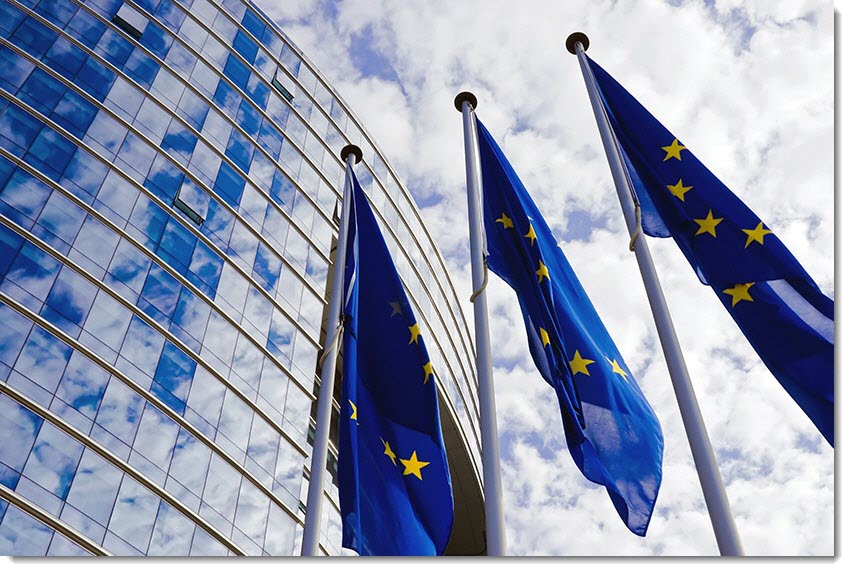
28/02/2025
EU Insight 28 February 2025
Brussels, 28 February 2025
FIRST OMNIBUS TARGETS SUSTAINABILITY REPORTING AND DUE DILIGENCE RULES
Following a plea by the European business community, the Commission presented this week its anticipated first Omnibus package, targeting a range of sustainability reporting and due diligence rules. The package notably puts forth substantial amendments to key enabling legislations for the EU’s Green Deal, namely the Corporate Sustainability Reporting Directive (CSRD) and the Corporate Sustainability Due Diligence Directive (CSDDD). The proposal also suggests delaying their implementation and amends the EU’s so-called carbon import tax – Carbon Border Adjustment Mechanism (CBAM). Despite the far-reaching amendments introduced by the Omnibus, the Commission’s narrative is one of remaining committed to the Green Deal’s objectives. A narrative which is being strongly challenged by NGOs, some industry players and certain political groups on the centre-left of the spectrum.
CLEAN INDUSTRIAL DEAL SETS OUT COMMISSION’S COMPETITIVE DECARBONISATION VISION
The Commission outlined its new vision for the EU’s decarbonisation trajectory, originally launched under the 2019 EU Green Deal, and now revamped under the Clean Industrial Deal. Presented alongside a new strategy aiming to lower energy prices across the Union – the Affordable Energy Action Plan – the Clean Industrial Deal, aims to support a competitive re-industrialisation of the EU. Overall, the initiative lays out measures which the Commission intends to adopt over the coming years to both foster clean manufacturing in the continent, as well as unlocking private investments. Notably, these include introducing a “Made in Europe” criteria for public procurement contracts or revising state aid measures for decarbonisation and clean tech projects.
GERMAN ELECTIONS: CONSERVATIVES’ VICTORY OVERSHADOWED BY RISE IN FAR-RIGHT
As Germans casted their vote last Sunday with the highest turnout rate since reunification (82.5%), they redrew the country’s political map. As expected, the conservative Christian Democratic Union (CDU) emerged as the dominant force with 28.5% of the vote, while the incumbent Social Democrats (SPD) suffered a major blow, falling to 16.4%. However, the main story to emerge from the elections, was the historic rise of Germany’s far-right party (AfD), who doubled their result from the previous election, reaching 20.8% of the vote. With mainstream parties refusing to cooperate with AfD, CDU leader Friedrich Merz will have to form a coalition agreement with the socialists – as the only realistic coalition partner left in Germany’s parliament – although negotiations are likely to be anything but smooth, given the public tensions between the parties.
TRUMP ANNOUNCES INCOMING 25% TARIFFS ON ALL EU IMPORTS, FOCUSING ON CAR SECTOR
Speaking at his first cabinet meeting since returning to the White House, U.S. President Donald Trump announced a 25% tariff on all EU imports, with a specific focus on the automotive sector. Although he offered no details on the measure, President Trump said that it will apply “generally”. The move follows the previous announcement of a 25% tariff on all steel and aluminium imports, set to become effective from 12 March. In response, the Commission warned of “firm and immediate” countermeasures, although it also reiterated its support for dialogue, as proof of the EU’s efforts to strike a delicate balance between a strong response and compromise. Whether the Commission’s diplomatic approach works with the erratic Trump administration, remains to be seen, as EU officials await details on the tariffs before officially deciding on a reaction.
SECOND OMNIBUS AIMS TO STREAMLINE ACCESS TO EU PUBLIC FUNDS
Alongside the first Omnibus package, the Commission presented its second Omnibus package, labelled the Investment Simplification Omnibus. Similarly to the first package, this second proposal falls under the Commission’s simplification agenda and thus aims to streamline and optimise access for stakeholders to public investment programmes such as the InvestEU fund. To note, InvestEU is the EU’s main facility to mobilise public funding and crowd in private investments towards the EU’s strategic sectors. Aside from reducing administrative burdens linked to the programmes, specifically for SMEs, the new package suggests providing an additional €50 billion to the fund, to boost its capacity.
COMING UP NEXT WEEK
• 4-5 March: Informal meeting of telecommunications ministers. On the agenda: Cybersecurity.
• 5 March: Justice and Home Affairs Council. On the agenda: Migration, Schengen, Internal security.
• 5 March: College of Commissioners. On the agenda: Action plan for the Automotive industry, Union of skills, roadmap for women’s rights.
• 6 March: Special European Council. On the agenda: Ukraine, European Defence
• 7 March: Justice and Home Affairs Council. On the agenda: Insolvency, rule of law.
Tuomas Tierala, Managing Partner Brussels, Kreab
_________________________________________________________
Kreab • Tel: +32 2 737 6900 • tuomas.tierala@kreab.com • www.kreab.com/brussels • X: @KreabEU • LinkedIn: Kreab Worldwide
